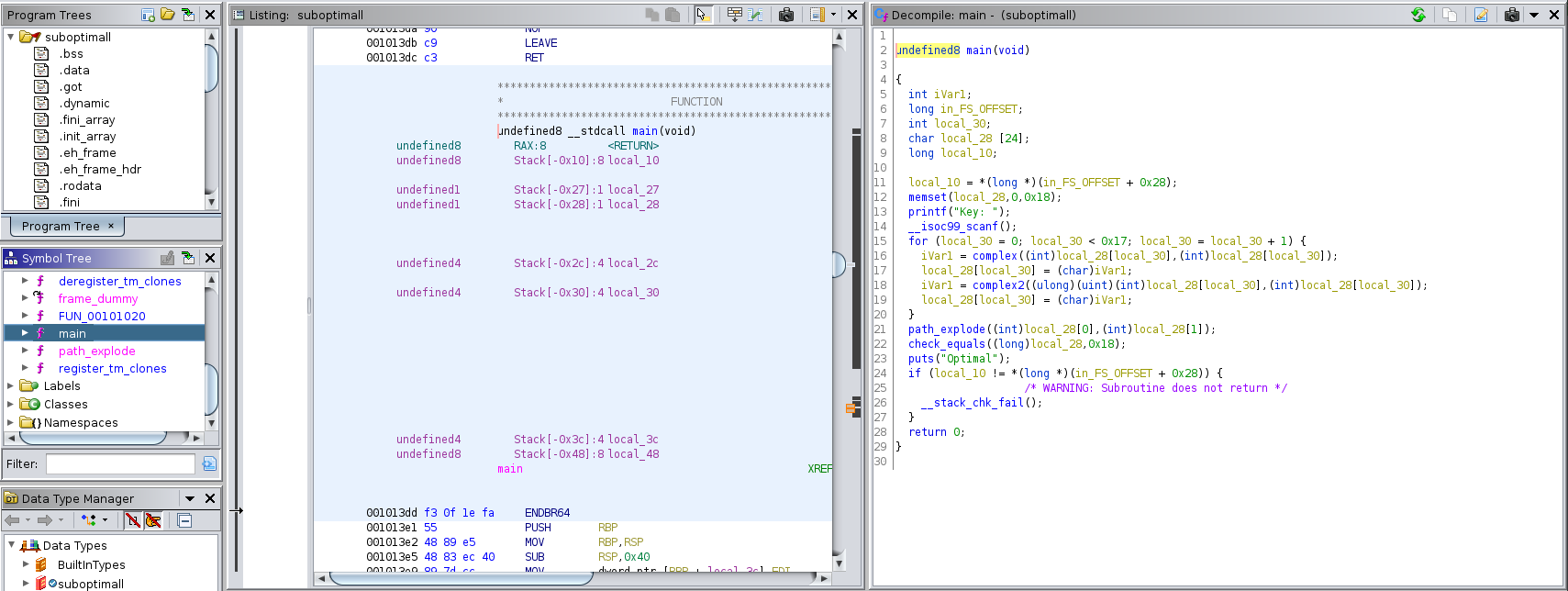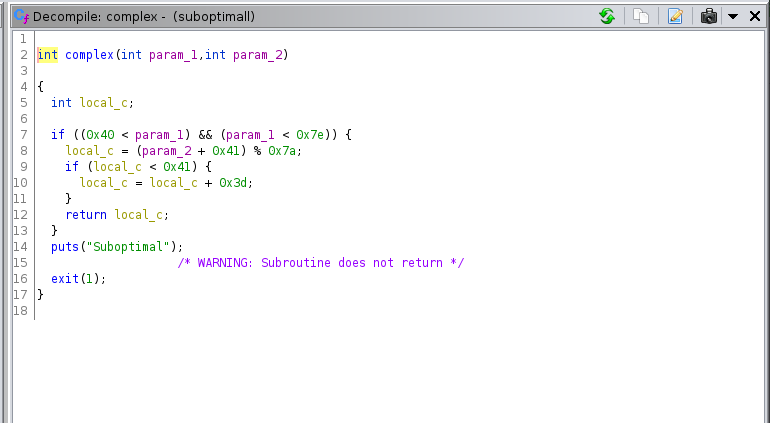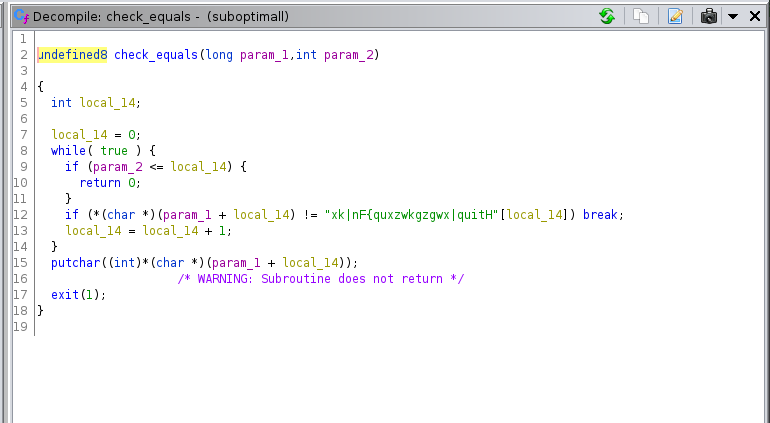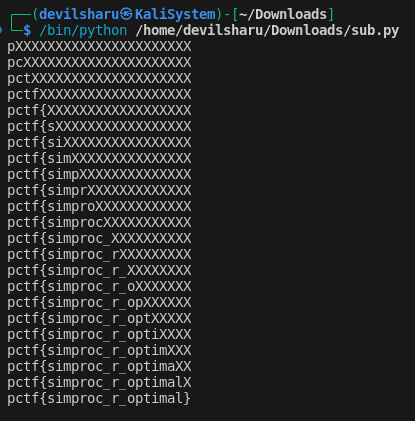Suboptimal
This is a pretty easy rev challenge that requires a bit of script in order to be time-efficient.
We are given an ELF64 binary that takes an user input and either prints suboptimal or another string.
Reverse Engineering
Let’s try to decompile the binary using Ghidra

We can see that the user input is read and each of its 23 characters is passed through two functions complex and complex2 that turn the character into another one. A new string is finally produced.
Let’s take a look at complex :

We can see that it checks if the character’s ASCII code is strictly greater than 64 and stricly lesser than 226. Therefore we know that the input string has to be equal to 23 (or greater but only the 23 first characters would be considered by the program).
Then the transformed string is passed into path_explode and check_equals.
path_explode is not interesting as it only prints new lines (\n).
Let’s see check_equals

So this program compares the transformed string to another one xk|nF{quxzwkgzgwx|quitH
The comparison is made char by char and, more importantly, when a comparison failed, the char of the transformed string is printed. Therefore we could bruteforce the flag char by char.
Brute-forcing
Let’s write a script that bruteforce the flag by checking (starting from the end of string) which char position has an impact on the output at each iteration
from subprocess import Popen, PIPE, STDOUT
import string
import time
def wrongChar(str):
test = str
p = Popen(['./suboptimal'], stdout=PIPE, stdin=PIPE, stderr=STDOUT)
init = p.communicate(input=test.encode("utf-8"))[0].decode()[-1]
p.kill()
for i in range(22,-1,-1):
p = Popen(['./suboptimal'], stdout=PIPE, stdin=PIPE, stderr=STDOUT)
testidx = test[:i:]+chr(ord(test[i])+1)+test[i+1::]
new = p.communicate(input=testidx.encode("utf-8"))[0].decode()[-1]
if new!=init:
break
return i
flag = "X"*23
for i in range(len(flag)):
for c in range(65,126):
inp = flag[:i:]+chr(c)+flag[i+1::]
p = Popen(['./suboptimal'], stdout=PIPE, stdin=PIPE, stderr=STDOUT)
encoded_input = p.communicate(input=inp.encode("utf-8"))[0].decode()[-1]
p.kill()
time.sleep(0.1)
if wrongChar(inp)!=i:
flag = inp
print(flag)
time.sleep(1)
break
This gives the following output :

Flag
pctf{simproc_r_optimal}
